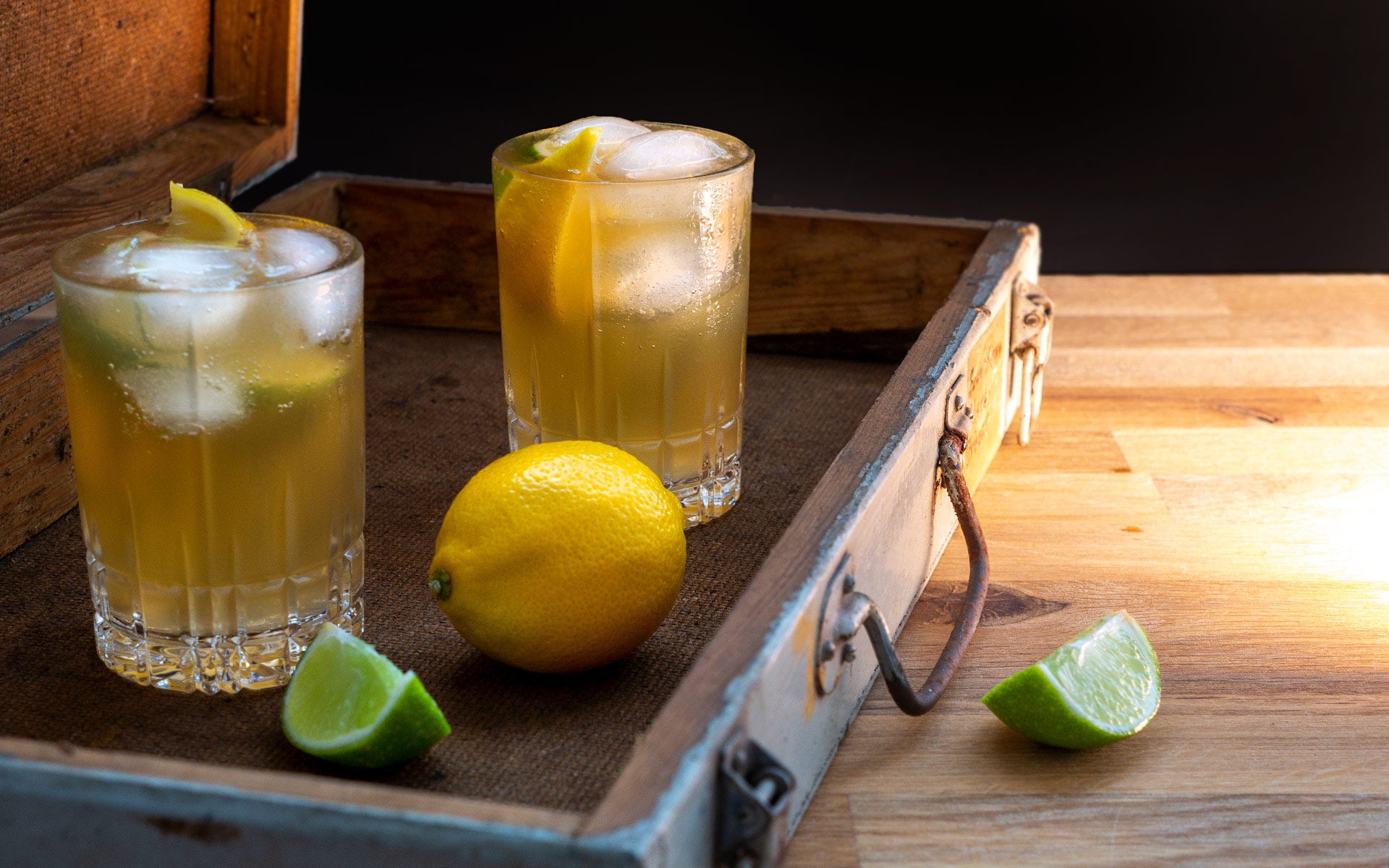Lynchburg Lemonade: The Story of Refreshing Tradition
February 29 2024

In the heart of Tennessee, amidst the rolling hills and spirited towns, a cocktail was born that would become a summertime classic: Lynchburg Lemonade. This refreshing mix of whiskey, lemonade, triple sec, and soda water has not only quenched the thirst of many but also carries with it a tale of tradition, innovation, and a little bit of controversy. Today, we dive deep into the legacy of Lynchburg Lemonade, exploring its origins, its rise to fame, and why it remains a beloved choice for cocktail enthusiasts around the globe.
Origins of a Classic: The Lynchburg Legend
Lynchburg, Tennessee, is famously known as the home of Jack Daniel's, a name synonymous with quality American whiskey. It's within this storied town that Lynchburg Lemonade traces its roots. The exact origins of the cocktail are a mix of folklore and fact, with several stories claiming the title of "creator." However, the most widely accepted version attributes the invention to a local bartender in the 1980s who sought to create a drink that captured the essence of Southern hospitality and the smooth, distinctive taste of Tennessee whiskey.
The Lynchburg Lemonade Recipe: A Perfect Balance
The beauty of Lynchburg Lemonade lies in its simplicity and balance. Here's a classic recipe that has delighted taste buds for decades:
-
Ingredients:
- 1 part Jack Daniel's Tennessee Whiskey
- 1 part triple sec
- 1 part fresh lemon juice
- 4 parts soda water (or lemon-lime soda for a sweeter taste)
- Ice
- Lemon slice and maraschino cherry for garnish
-
Instructions:
- In a shaker, combine Jack Daniel's, triple sec, and fresh lemon juice with ice.
- Shake well and strain into a chilled glass filled with ice.
- Top with soda water or lemon-lime soda.
- Garnish with a lemon slice and a maraschino cherry.
This cocktail's appeal lies in its refreshing taste, with the whiskey providing a warm, smooth base that is perfectly complemented by the tartness of the lemon and the sweetness of the triple sec.
A Sip of Controversy: The Legal Battle
The story of Lynchburg Lemonade isn't without its drama. In the late 1980s, a legal battle ensued between the creator of the cocktail and the Jack Daniel's Distillery, which had begun marketing the drink without acknowledging its originator. The lawsuit highlighted the challenges of copyrighting cocktail recipes and opened a dialogue about intellectual property in the culinary world. Though the case was settled, it left a lasting impression on the beverage industry and underscored the importance of crediting creative work.
Variations on a Classic: Personalizing Lynchburg Lemonade

One of the joys of Lynchburg Lemonade is its versatility. Bartenders and home mixologists alike have crafted their versions, experimenting with ingredients like homemade lemonade, different brands of whiskey, and various sweeteners. Some popular variations include using honey syrup instead of triple sec for a smoother sweetness or adding a splash of cranberry juice for a fruity twist. The possibilities are as broad as your imagination, making Lynchburg Lemonade a canvas for creativity.
The Cultural Impact of Lynchburg Lemonade
Lynchburg Lemonade transcends its status as a mere cocktail; it's a symbol of Southern hospitality and the innovative spirit of American mixology. Its presence at barbecues, pool parties, and outdoor weddings speaks to its role in bringing people together over a shared love for good drinks and good company. Moreover, the cocktail's history is a reminder of the complexities and nuances that often accompany the creation of something new and beloved.
Conclusion: The Legacy Continues
As we raise our glasses to the enduring legacy of Lynchburg Lemonade, we're reminded of the power of a simple cocktail to tell a rich story. From its disputed origins to its place in legal lore, from summer barbecues to elegant soirees, Lynchburg Lemonade has carved its niche in the cocktail world. It stands as a testament to the timeless appeal of whiskey, the joy of experimentation, and the enduring value of authenticity and tradition in the culinary arts.

0 comments